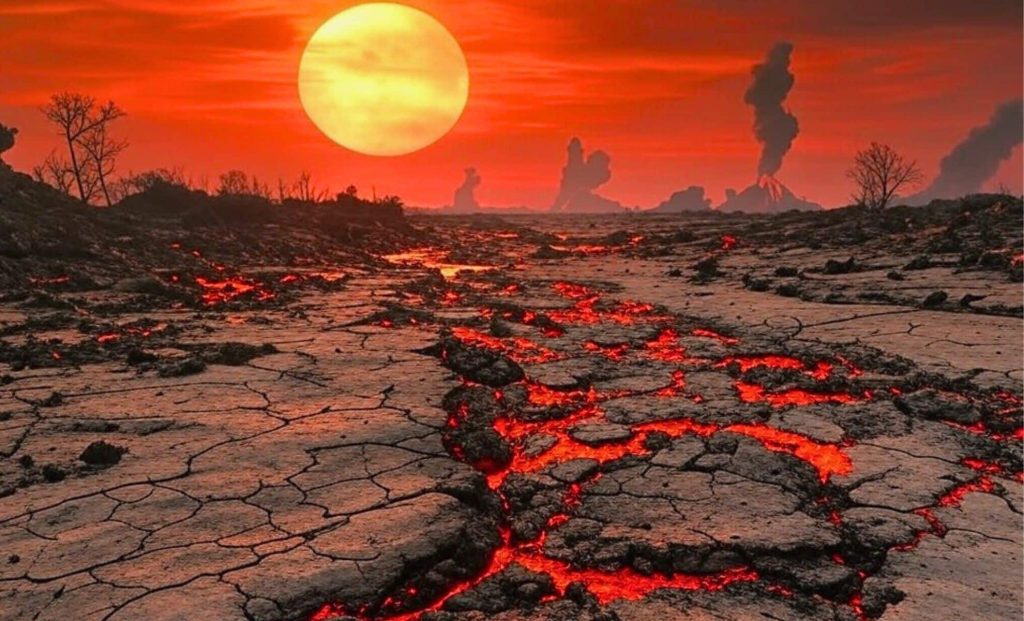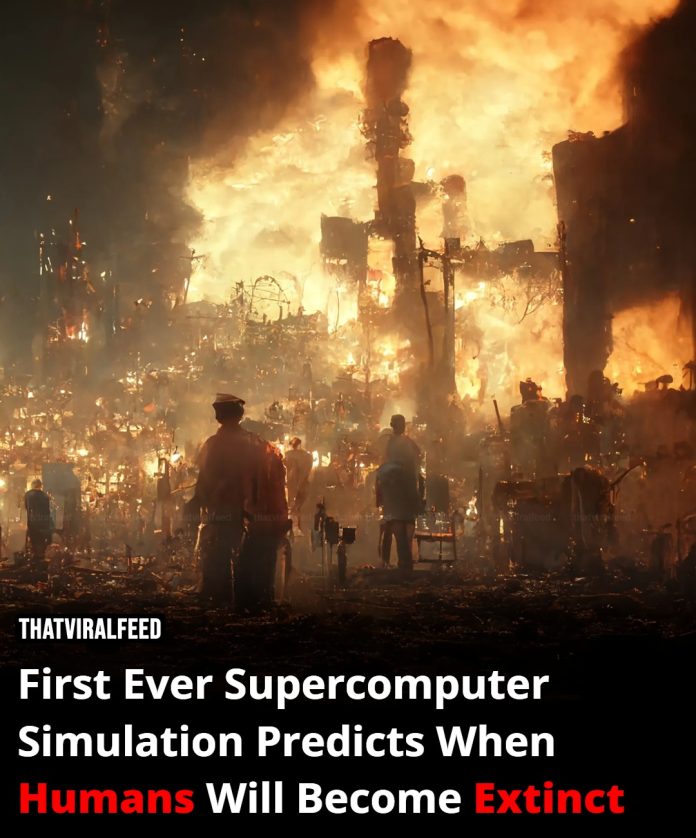A recent simulation conducted by a powerful supercomputer, led by researchers from the University of Bristol, has made a stunning prediction: humans may go extinct in about 250 million years. The study, which combines advanced climate models with tectonic, oceanic, and biological data, paints a stark picture of Earth’s distant future — one where extreme environmental conditions make human life unsustainable.
The Rise of a New Supercontinent: Pangaea Ultima
Central to the simulation’s findings is the future formation of a supercontinent named Pangaea Ultima. Scientists believe that over the next 250 million years, Earth’s tectonic plates will shift in such a way that all current continents will merge into one gigantic landmass. This supercontinent is expected to form near the equator, drastically altering the global climate. The result? Unbearably high temperatures, increased humidity, and intensified volcanic activity. With most of the planet’s surface turned into arid desert and tropical heat zones, it would become nearly impossible for mammals — including humans — to survive. The simulation suggests that only about 8 to 16 percent of Earth’s surface would remain habitable for warm-blooded species.

Climate Change: A Warning for the Present
Although the predicted extinction is far in the future, the study serves as a critical warning for our present. According to Dr. Eunice Lo, a climate scientist and co-author of the study, the simulation highlights how greenhouse gas emissions are already contributing to rising temperatures, putting stress on both human health and natural ecosystems. She emphasizes that, while the Earth may not reach supercontinent-induced heat extremes for hundreds of millions of years, climate change is happening right now, and its effects are becoming more visible each year. From deadly heatwaves and wildfires to rising sea levels and loss of biodiversity, current trends echo the early stages of the supercomputer’s predictions.
The Role of Volcanic Activity and Ocean Chemistry
In addition to the merging of continents, volcanic activity will likely increase, releasing vast amounts of CO₂ into the atmosphere. This would further trap heat and create an intense greenhouse effect, similar to conditions during past mass extinction events. Changes in ocean chemistry would also disrupt marine ecosystems. Oxygen levels in the oceans could fall, leading to mass die-offs of marine life. This cascading chain of environmental disasters would make the planet increasingly inhospitable.
A Call for Urgent Action
While we are not in immediate danger of global extinction, the study is a powerful reminder of the fragility of Earth’s ecosystems and the importance of taking action today. Scientists argue that we must invest in sustainable technologies, protect natural resources, and reduce global carbon emissions to prevent accelerating the timeline of ecological collapse.

Conclusion: A Glimpse Into a Distant Future
The supercomputer’s prediction offers a rare glimpse into Earth’s distant future, revealing how planetary processes could eventually bring an end to human life. But it also reminds us that the choices we make now — in politics, science, and daily life — can shape the future of our planet. Humanity’s long-term survival depends not only on preparing for what’s coming, but also on changing how we live today.

















